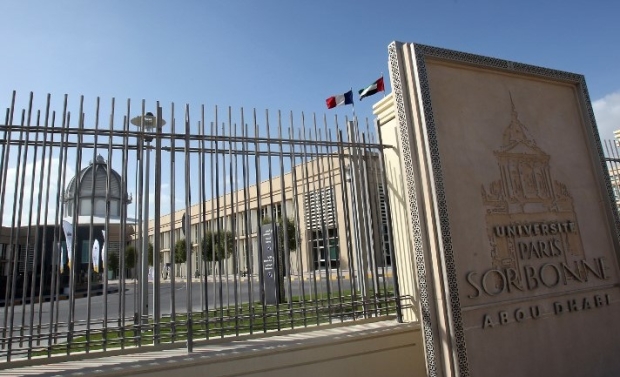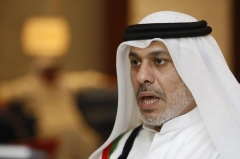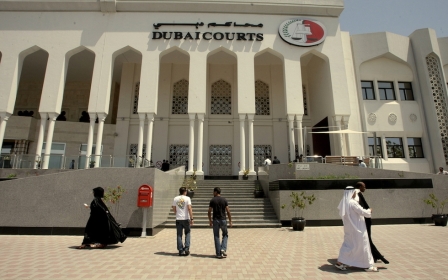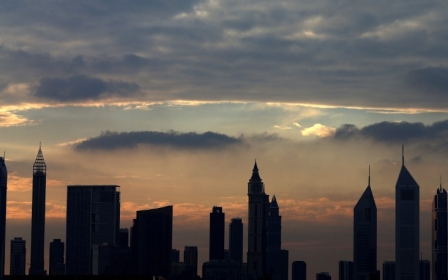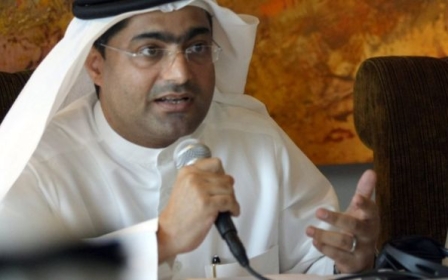Matthew Hedges is free. What about UAE citizens who are unfairly jailed and silenced?
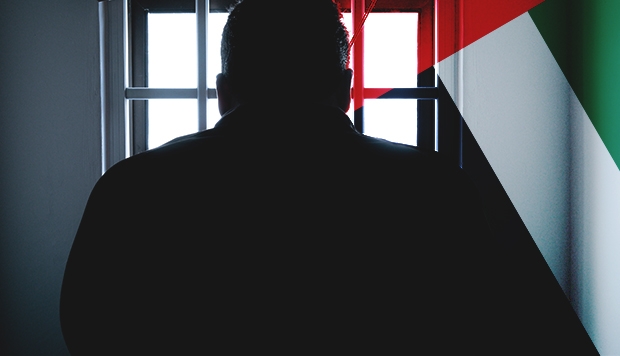
The day before the United Arab Emirates (UAE) announced it was granting a pardon to the British academic Matthew Hedges, who had been convicted of spying and sentenced to life imprisonment, Alistair Burt, the UK minister of state for the Middle East and North Africa tweeted his congratulations to the government of Bahrain for the "successful conclusion of the first rounds of voting" in that country's parliamentary election.
The two events might appear at first glance to be unconnected but they are not.
False narratives
The UAE, a collection of seven small Gulf states, of which the most important are Dubai and Abu Dhabi, resolutely stuck to its claim that Hedges was a spy, even broadcasting the video of his confession to justify the conviction. Conveniently ignored were facts such as that he was held in solitary confinement for nearly six months, denied access to lawyers and was given a life sentence in a five minute hearing devoid of due legal process.
Where was the pressure when another academic, Nasser bin Ghaith, was seized in 2016 and held in an unknown place for nearly a year before being brought to trial and sentenced to ten years in jail for voicing his opinion?
In praising the election in Bahrain, Burt ignored the fact that Sheikh Ali Salman, the already jailed leader of the major and banned political society al-Wefaq, had been sentenced to life in prison on the patently false charge that he had plotted with Qatar in 2011 to overthrow the government.
Ignored too was the banning of the other significant political society Wa’ad. No one associated with either of those societies was permitted to run in the election. And many citizens from the majority Shia community remain in jail for attempting to exercise the democratic right to peacefully voice an opinion.
And the narrative for the UAE is that Hedges' detention, trial and conviction was an aberration, a regrettable misstep by a valued comrade of longstanding.
The saving face game
The judiciary in the UAE is politicised and functions at the whim of the ruling families. But clearly, Mohammed Bin Zayed, also known as MBZ, the crown prince of Abu Dhabi and de facto ruler had miscalculated the degree of international opprobrium that would rain down, as well as the reputational damage such a brazenly outrageous decision would cause. For MBZ saving face became the name of the game.
Academics and writers had rallied to the side of Matthew Hedges and his brave and formidable wife Daniela Tejada. A petition quickly gathered over 200,000 signatures. Several
MBZ, in what was for him a rare moment of defeat, succumbed to the pressure. But where was the pressure when another academic, the internationally prominent economist Nasser Bin Ghaith was seized in 2016 and held in an unknown place for nearly a year before being brought to trial and sentenced to ten years in jail for voicing his opinion?
Where was the outcry when the distinguished human rights activist Ahmed Mansoor was disappeared in March of last year before being hauled before a court and given ten years for the same "crime" as Bin Ghaith? Both men are Emirati citizens, a grave misfortune it would seem, as the world showed scant interest in their fate.
And why did western universities open campuses in a country where freedom of expression is routinely and aggressively repressed? Currently 10 UK universities and colleges are listed as having campuses in or intensive academic relationships with the UAE.
That’s double the number the United States has. The University of Birmingham is one with a campus and others include Middlesex, Heriot-Watt, Bradford and Bolton. All of them were very happy to do business with the Emiratis, despite longstanding and easily verifiable evidence of multiple human rights abuses, including the suppression of free speech.
Equally, why does Burt think that praising the government of Bahrain enhances democracy and the rule of law? It does nothing of the sort. Rather it continues to embolden the ruling family to abuse its own citizens.
The list is long
It is to be hoped that the pressure of academics, writers and the UK government will not simply dissipate in the wake of the pardon and release of Matthew Hedges. After all, if you are concerned about academic freedom then you should be demanding Bin Ghaith's release.
If you share the values of free speech that Ahmed Mansoor has sacrificed so much to champion then the same pressure that enabled the release of a British academic should be used in the cause of Mansoor, the winner of the 2015 Martin Ennals award for human rights defenders.
And if Burt truly believes in encouraging democracy in Bahrain, he should condemn the show trial of Sheikh Salman and demand his release, he should call for the unbanning of political societies and the release of human rights activists like Nabeel Rajab and Abdulhadi al-Khawaja, brutally beaten when he was arrested in 2011 and currently serving life in prison.
And if he cares about free speech, he should condemn the 2017 government ordered closure of Al Wasat, the only independent media voice in the Gulf.
The truth is that conscience is a convenient mistress, summoned at times and ignored at others. I am very glad that Matthew Hedges has been released. I pray that he recovers fully from his awful ordeal. But what about all those others denied justice, unfairly jailed and silenced?
Lest we forget: Nasser Bin Ghaith, Ahmed Mansoor, Nabeel Rajab, Abdulhadi al-Khawaja. There are many more in the UAE and Bahrain that I could name. In Saudi Arabia the blogger Raif Badawi, the women’s rights activist Loujain Al-Hathloul, the moderate Sheikh Salman Al Oudah and many, many more. The list should trouble us deeply, pull at our consciences and call out our hypocrisies and double standards.
The list is long, very long. Too long to be ignored.
- Bill Law is a Middle East analyst and a specialist in Gulf affairs. He tweets @billlaw49.
The views expressed in this article belong to the author and do not necessarily reflect the editorial policy of Middle East Eye.
Photo: Art by MEE Graphics
New MEE newsletter: Jerusalem Dispatch
Sign up to get the latest insights and analysis on Israel-Palestine, alongside Turkey Unpacked and other MEE newsletters
Middle East Eye delivers independent and unrivalled coverage and analysis of the Middle East, North Africa and beyond. To learn more about republishing this content and the associated fees, please fill out this form. More about MEE can be found here.



